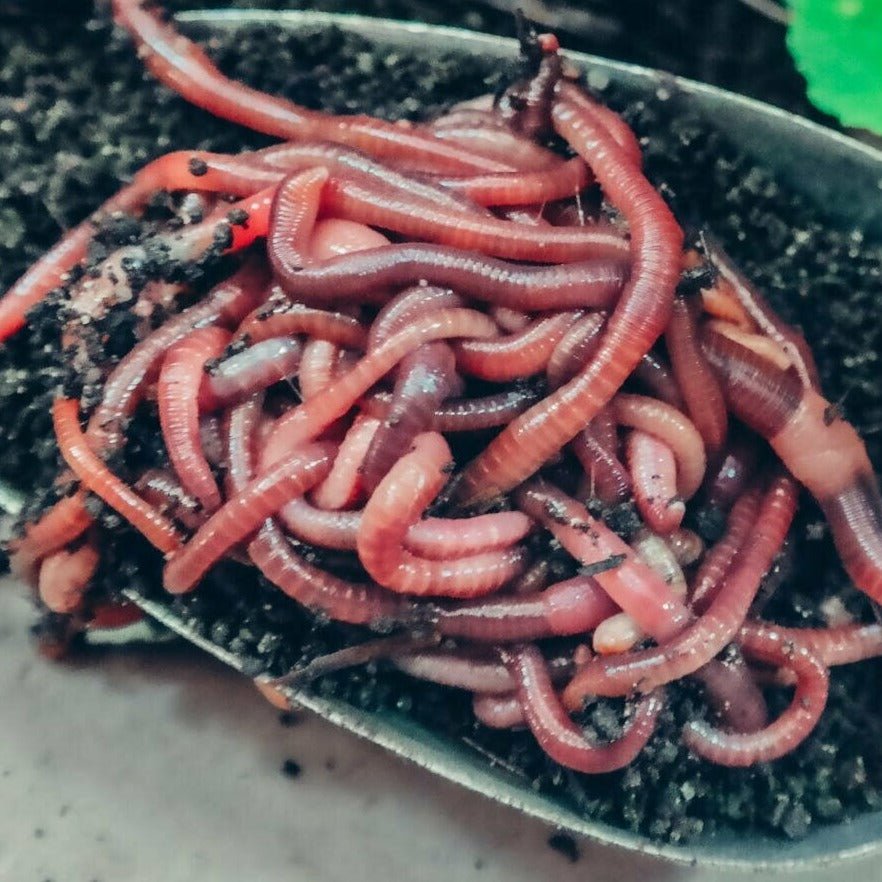Top red wigglers: For eco-conscious gardening
Top red wigglers: For eco-conscious gardening
Blog Article
Why Red Wigglers Are Essential for Chemical-free Farming
Red wigglers play a critical role in natural farming, largely with their one-of-a-kind capacity to decay natural materials and boost soil health. The extent of their effect on agricultural practices and soil biology elevates appealing concerns about the future of organic farming.
Function of Red Wigglers in Dirt Health

Furthermore, red wigglers boost dirt framework by producing channels as they tunnel. These channels improve aeration and water infiltration, promoting a much healthier origin environment. Their task likewise assists in keeping optimum dampness levels, which is vital for healthy and balanced plant development.

Advantages of Worm Castings
Worm spreadings, the nutrient-rich waste matter generated by red wigglers, work as a powerful modification for natural farming. These spreadings are brimming with important nutrients such as nitrogen, phosphorus, and potassium, which are important for plant development. Unlike synthetic plant foods, worm castings launch nutrients slowly, supplying a consistent supply over time and minimizing the risk of nutrient leaching and overflow.
Moreover, worm castings enhance dirt framework and oygenation, advertising healthier origin systems. Their high organic matter content improves dampness retention, making it possible for plants to better endure drought conditions. Furthermore, worm spreadings include helpful microbes that sustain plant health by subduing pathogens and enhancing nutrition uptake.
The application of worm spreadings can bring about boosted crop yields and enhanced high quality of produce, making them an indispensable resource for natural farmers. Their use also lines up with sustainable farming methods, adding to soil fertility without the negative environmental influences connected with chemical plant foods. In general, the unification of worm castings right into farming methods fosters a much more durable and productive ecosystem, underscoring the importance of red wigglers in chemical-free farming systems.

Enhancing Nutrient Cycling
(red wigglers for composting)Vitamins and mineral biking is a critical procedure in chemical-free farming, and the assimilation of red wigglers plays a crucial role in enhancing this cycle. These earthworms add considerably to the failure of raw material, helping with the transformation of complex organic materials into easier, more obtainable nutrients for plants. As red wigglers take in decomposing raw material, they secrete nutrient-rich castings, which are including valuable microorganisms. This microbial task further aids in the decay process, making sure that essential nutrients are readily available for plant uptake.
Furthermore, red wigglers assist to increase the mineralization of nutrients, transforming them from inert kinds right into bioavailable forms that plants can soak up. This process is important for maintaining soil fertility and advertising healthy crop growth. The visibility of red wigglers additionally motivates a diverse soil ecosystem, fostering a balance of nutrients that sustains numerous plant types.
Improving Soil Structure
The enhancement of soil structure is important for fostering a healthy and balanced farming ecosystem, and the task of red wigglers significantly contributes to this enhancement. These earthworms play an essential role in aerating the dirt and developing a network of channels that assist in water seepage and root infiltration. As they burrow through the soil, red wigglers separate compressed layers, permitting much better oxygen exchange and promoting microbial activity.
In addition, the organic matter produced from their waste, called vermicast, boosts dirt aggregation. This process produces steady globs of dirt fragments, improving dirt porosity and lowering disintegration (red wigglers). The visibility of red wigglers also motivates the growth of useful fungal networks, which are critical for nutrient uptake by plants
Supporting Lasting Practices
Integrating red wigglers into organic farming techniques not only improves dirt health but also promotes lasting farming approaches. These earthworms play a crucial function in vitamins and mineral biking, transforming natural waste into valuable garden compost that enhances the soil. By utilizing red wigglers, farmers can effectively decrease reliance on synthetic plant foods, thereby lessening chemical runoff and its destructive results on communities.
Moreover, the incorporation of red wigglers motivates the technique of reusing natural materials, such as kitchen area scraps and farm waste. This waste reduction technique not just reduces disposal costs however also fosters a closed-loop system where nutrients are continually returned to the dirt (red wigglers). Such methods are essential in mitigating climate adjustment, as they enhance carbon sequestration and reduce greenhouse gas exhausts
In addition, red wigglers improve water retention in the dirt, which is crucial in times of dry spell. Their burrowing activities produce channels that enable water to penetrate much deeper into the ground, hence promoting efficient water usage. Inevitably, integrating red wigglers right into natural farming not only supports biodiversity but likewise straightens with the concepts of sustainable farming, using an all natural method to food production.
Conclusion
In final Bonuses thought, red wigglers play a crucial role in organic farming by dramatically improving dirt health and wellness and fertility. Thus, the combination of red wigglers right into agricultural techniques is crucial for advertising sustainability and enhancing overall dirt top quality.
Report this page